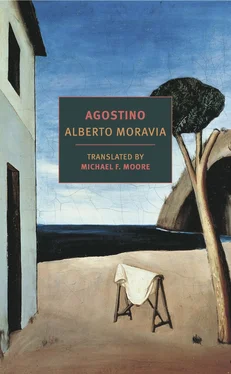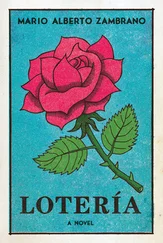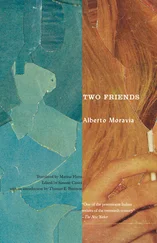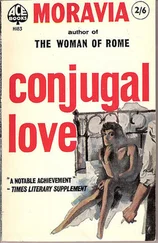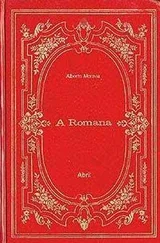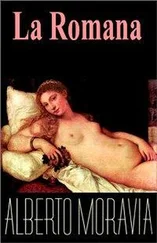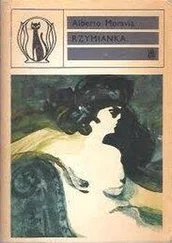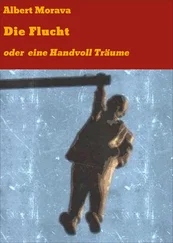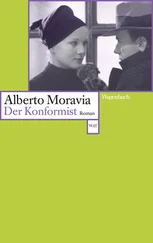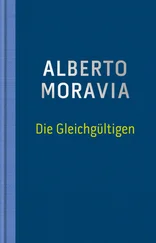Handsome and elegant, his arms folded over a broad dark chest on which scattered blond hairs glittered like gold, Sandro stepped forward into the circle of boys reclining in the sand. Agostino noticed his strong tanned legs, which seemed enveloped in a cloud of gold dust. More blond hairs escaped from his groin, poking through the holes in his red swimming trunks. “It’s very simple,” he said in a strong clear voice. And speaking slowly and illustrating his points with gestures that were effective but not what might be considered vulgar, he explained to Agostino something he seemed to have always known and, as if in a deep sleep, forgotten. His explanation was followed by other less sober descriptions. Some of the boys made coarse hand gestures. Others repeated in loud voices words that were new and abhorrent to Agostino’s ears. Two of them said, “Let’s show him how to do it,” and fell to the burning sand in each other’s arms, shuddering and rubbing against each other. Sandro, pleased with his success, had withdrawn to the side and was finishing his cigarette in silence. “Now do you understand?” asked Saro, as soon as the hubbub had died down.
Agostino nodded. In reality he hadn’t so much understood as absorbed the notion, the way you absorb a medicine or a poison and don’t feel the effect immediately but know that the pain or the benefit will not be kept waiting much longer. The notion wasn’t in his vacant, aching, befuddled mind but in another part of himself, in his heart swelling with bitterness, deep inside his chest, which was surprised to welcome it. It was not unlike a bright shiny object whose splendor makes it hard to look at directly and whose shape can thus barely be detected. It was as if he had always known but never felt it in his bones the way he did now.
“Renzo and Pisa’s mother,” he heard someone saying behind him. “I’ll be Renzo and you be the mother. OK?” He pivoted around to see Berto who, with a coarse gesture and even more coarse formality, was bowing and asking another boy, “My lady, would it please you to go for a boat ride… to go for a little dip in the sea… Pisa will accompany us.” Blinded by a burst of rage, he pounced on Berto, shouting, “Don’t talk about my mother!” But even before he knew what had happened, he was flat on the ground, held in place by Berto’s knee while fists showered down on his face. He wanted to cry, but knowing that tears would only lead to more teasing, he made a supreme effort to restrain them. He covered his face with one arm and lay there motionless, as if he were dead. After a little while Berto let him go, and Agostino, battered and bruised, went to sit at Saro’s feet. The voluble boys had already moved on to another topic. One of them asked Agostino, point-blank, “Are you rich?”
By now Agostino was so intimidated he didn’t know what to say, but he answered anyway. “I think so.”
“How much? One million? Two million? Three million?”
“I don’t know,” said Agostino, at a loss for words. “Do you have a big house?”
“Yes,” said Agostino. Reassured by the more polite tone the dialogue was assuming, he couldn’t resist boasting, “We have twenty rooms.”
“Twenty rooms,” an admiring voice repeated.
“Wow,” said another voice, incredulously.
“We have two living rooms,” said Agostino, “and then there’s my father’s study—”
“Get a load of him,” one voice said.
“I mean, it used to be my father’s,” Agostino hastened to add, almost hoping that this detail would attract the boys’ sympathy. “My father passed away.”
There was a moment of silence. “So your mother’s a widow?” Tortima asked.
“Well, yeah,” a few voices said jokingly.
“What difference does it make? She might have remarried,” was Tortima’s defense.
“No… she didn’t remarry,” said Agostino.
“Do you have a car, too?” another voice asked.
“Yes.”
“And a driver?”
“Yes.”
“Tell your mother I’m ready to be her driver,” one boy shouted.
“What do you do with all those rooms?” asked Tortima, who seemed more impressed by Agostino’s stories than anyone else. “Do you have balls?”
“Yes, my mother holds receptions,” Agostino replied.
“There must be a lot of beautiful ladies,” said Tortima, as if talking to himself. “How many people come?”
“I don’t know.”
“How many?”
“Twenty or thirty,” replied Agostino, who was now feeling reassured and a little bit cocky about this success.
“Twenty or thirty… and what do they do?”
“What do you think they do,” said Berto ironically. “They probably dance, have fun. They’re rich, not poor slobs like us. They probably make love—”
“No, they don’t make love,” said Agostino earnestly, also to show that at this point he knew perfectly what the expression meant.
Tortima seemed to be struggling with an obscure idea he couldn’t quite formulate. He finally said, “But if out of the blue, I were to show up at one of those receptions and say, ’Here I am,’ what would you do?”
As he said this he got to his feet and went through the motions of someone introducing himself with a swagger, chest swelling, hands on his hips. The boys all burst out laughing.
“I would ask you to leave,” said Agostino plainly, encouraged by the boys’ laughter.
“And if I refused to leave?”
“I would have the waiters show you the door.”
“You have waiters?” someone asked.
“No, but when we have receptions my mother hires them.”
“Huh, just like your father.” One of the boys must have been a waiter’s son.
“And if I were to resist the waiters, punch them in the face and make my way to the middle of the room and shout, ’You’re a bunch of crooks and bitches,’ what would you say then?” Tortima insisted menacingly, walking up to Agostino and poking his fist under his nose, as if to make him smell it. But now everyone turned against Tortima, not to take Agostino’s side so much as to hear more details about his fabulous wealth.
“Leave him alone. They’d kick you out and they’d be right,” were the protests all around. With disdain Berto said, “Keep out of it. Your father’s a sailor, and you’re going to end up a sailor, too. And if you show up at Pisa’s house you wouldn’t be shouting a thing. I can almost see you,” he added, jumping to his feet and mimicking Tortima’s imagined deference at Agostino’s house: “ ’Begging your pardon, is this the home of Master Pisa? Begging your pardon… I’ve come… it doesn’t matter, my apologies… my apologies for the disturbance, I’ll come back later.’ I can almost see you. You’d be bowing all the way down the stairs.”
All the boys laughed. Tortima, as stupid as he was brutal, didn’t dare attack them for laughing, but still itching for retaliation he asked Agostino, “Do you know how to arm wrestle?”
“Arm wrestle?” Agostino repeated.
“He doesn’t know what arm wrestling is,” several derisive voices called out. Sandro took Agostino’s arm, and bent it back, forcing his hand in the air and his elbow into the sand. Meanwhile Tortima had reclined on the sand, belly-down, and positioned his arm in the same manner. “You have to push in one direction,” Sandro said, “while Tortima pushes in the other.”
Agostino took Tortima’s hand. With a single shove, Tortima had his arm flat on the ground and stood up triumphantly.
“My turn,” said Berto, and with the same ease as Tortima he nailed Agostino’s arm to the ground. “Me, me,” shouted his pals. One after the other they each had a try and each one of them beat Agostino. The last to come forward was the black boy, and a voice said, “If you let Homs beat you, well, then your arms must be made out of rubber.” Agostino decided that at least the black boy wouldn’t beat him.
Читать дальше
